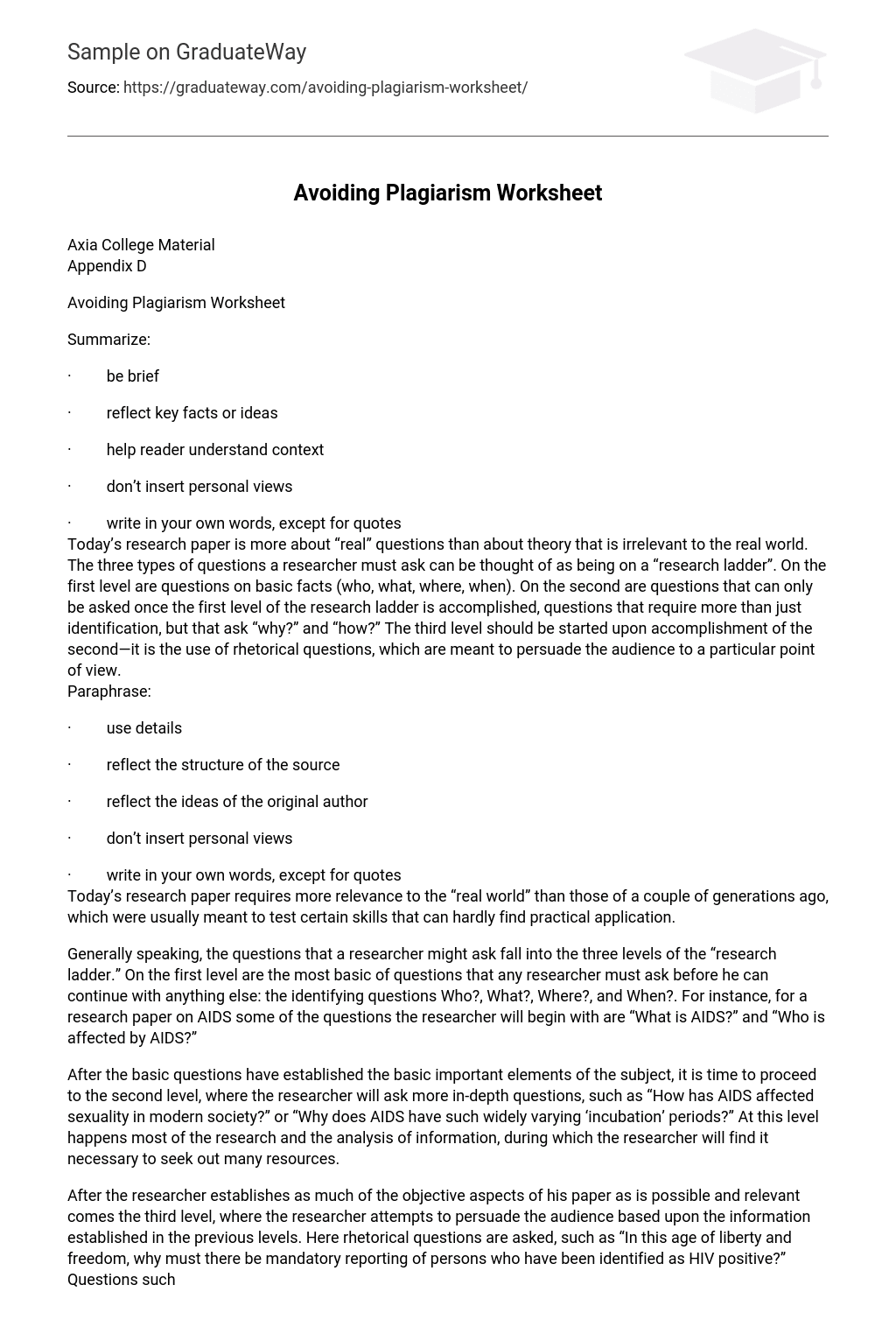Today’s research paper is more about “real” questions than about theory that is irrelevant to the real world. The three types of questions a researcher must ask can be thought of as being on a “research ladder”. On the first level are questions on basic facts (who, what, where, when).
On the second are questions that can only be asked once the first level of the research ladder is accomplished, questions that require more than just identification, but that ask “why?” and “how?” The third level should be started upon accomplishment of the second—it is the use of rhetorical questions, which are meant to persuade the audience to a particular point of view. Today’s research paper requires more relevance to the “real world” than those of a couple of generations ago, which were usually meant to test certain skills that can hardly find practical application.
Generally speaking, the questions that a researcher might ask fall into the three levels of the “research ladder.” On the first level are the most basic of questions that any researcher must ask before he can continue with anything else: the identifying questions Who?, What?, Where?, and When?. For instance, for a research paper on AIDS some of the questions the researcher will begin with are “What is AIDS?” and “Who is affected by AIDS?”
After the basic questions have established the basic important elements of the subject, it is time to proceed to the second level, where the researcher will ask more in-depth questions, such as “How has AIDS affected sexuality in modern society?” or “Why does AIDS have such widely varying ‘incubation’ periods?” At this level happens most of the research and the analysis of information, during which the researcher will find it necessary to seek out many resources.
After the researcher establishes as much of the objective aspects of his paper as is possible and relevant comes the third level, where the researcher attempts to persuade the audience based upon the information established in the previous levels. Here rhetorical questions are asked, such as “In this age of liberty and freedom, why must there be mandatory reporting of persons who have been identified as HIV positive?” Questions such as these require thoughtful (and subjective) arguments.
In writing a research paper, it is best to establish the questions that need to be answered, starting with the most basic questions at the first level, then proceeding to the next level based on the information found in the first level. Opinions can then be formed after the second level is accomplished, after which the researcher must persuade his audience about his particular view on the subject.





